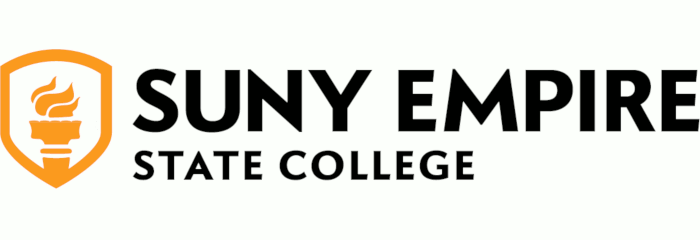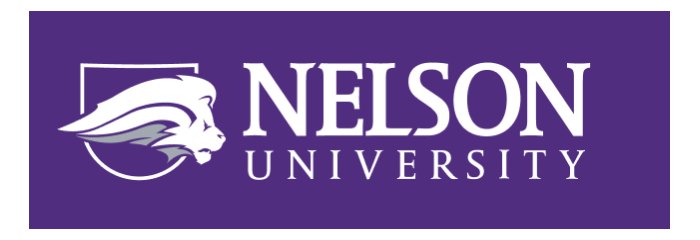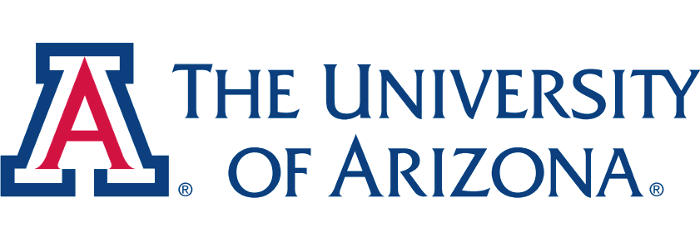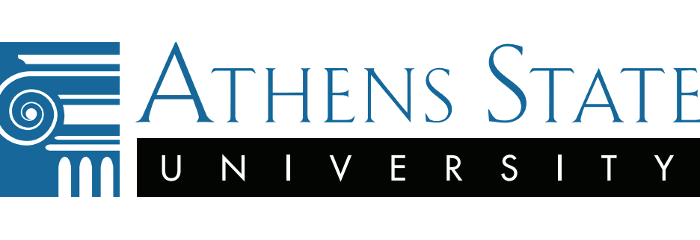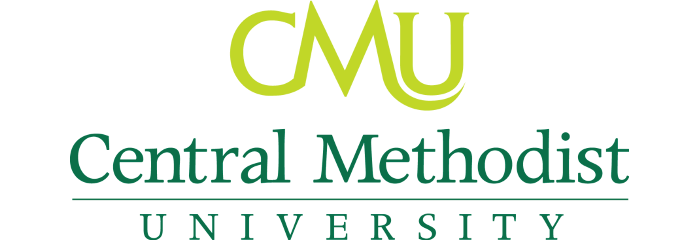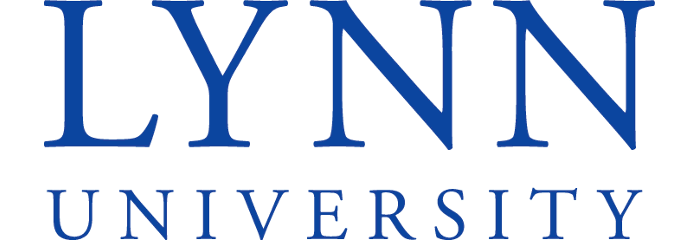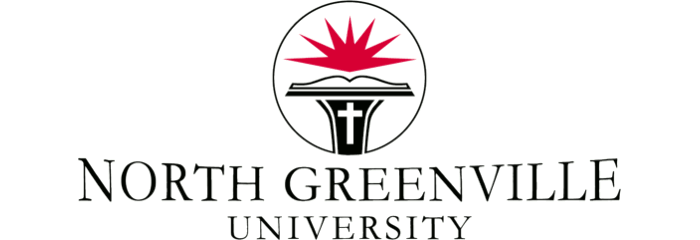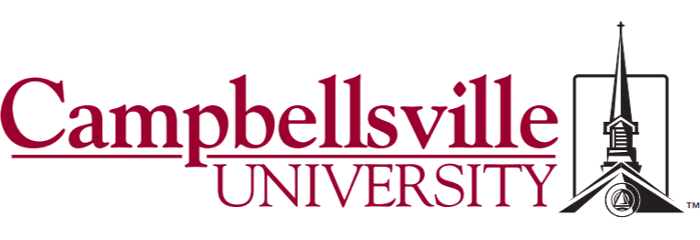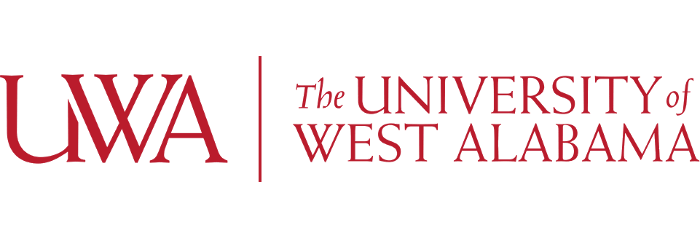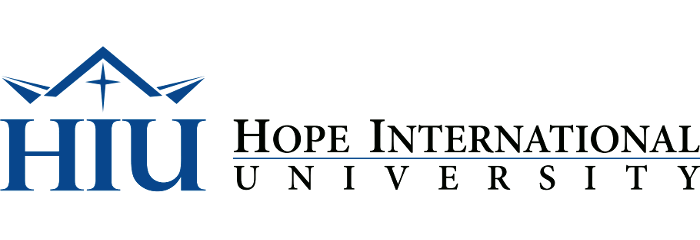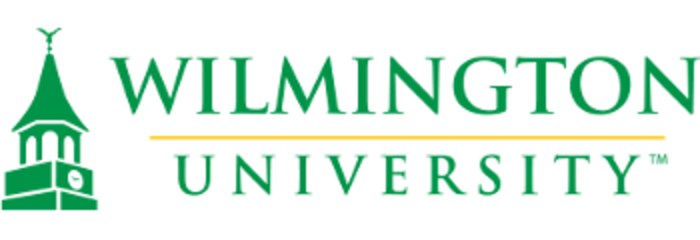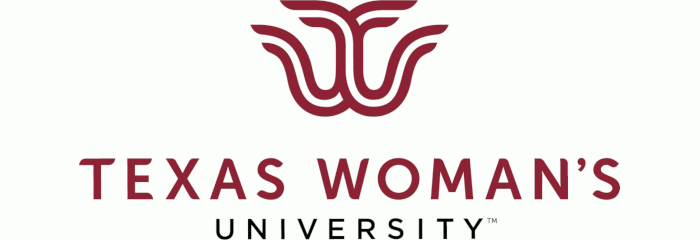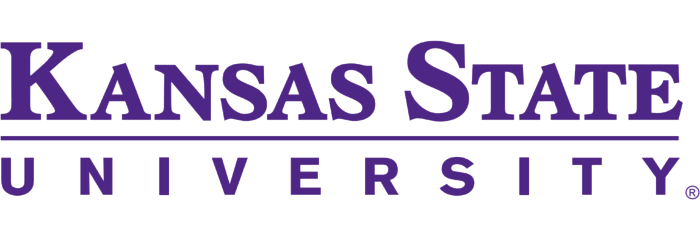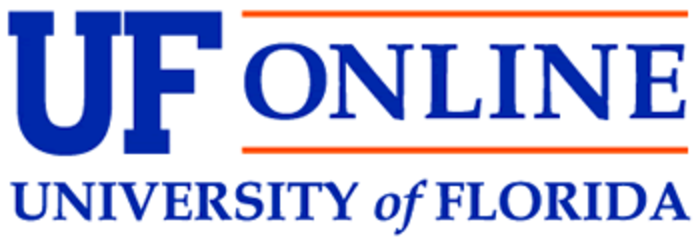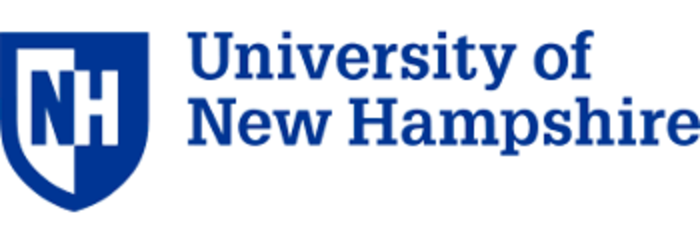2025 Best Online Education Degrees
An online bachelor’s degree in education prepares students to pursue teaching careers for grades K-12. An online education degree is available in core subjects, like mathematics and English, as well as special education. Typically, the curriculum explores topics like classroom management, teaching methods, and family collaboration. Online education degrees also often include practicum or student-teaching components, allowing you to gain hands-on experience in educational settings, bridging theory and practice effectively.
Key Takeaways:
- Our most affordable schools offering online education degrees not only have low tuition below $14,000, but they also offer average financial aid packages up to $36,262.
- Schools with the best student reviews all score 3.67 out of 5 and above.
- Schools with the best Salary Scores all have median earnings above $41,000.
Our methodology for selecting the best online education degrees in 2024 highlights colleges based on affordability, earnings potential, and student satisfaction.
Featured Popular Online Colleges

Purdue Global
- Online Enrollment: 33,392
Purdue Global offers an online Bachelor of Science in Early Childhood Administration, designed to prepare you for leadership roles in early childhood settings. The program requires 34 courses, totaling 180 quarter credits, and costs $371 per credit. You can expect to spend 15-18 hours per week on coursework and potentially complete the degree in four years. The curriculum covers child development, early education, and management skills, while providing practical experience through internships. Graduates are eligible for roles such as preschool directors, earning $34,373-$52,134, with a job growth perspective of 8% in your state.

Liberty University
- Online Enrollment: 35,243
Liberty University's Bachelor of Science in Early Childhood Education Interdisciplinary Studies is a 120-credit hour program delivered entirely online in 8-week courses. The program enables you to transfer up to 75% of previous credits. Ranked in the Top 10% of Niche.com's Best Online Schools, this degree is non-licensure, preparing you for roles in Christian schools, childcare facilities, and as a paraprofessional educator. Accredited by SACSCOC, the program offers flexibility with 8 start dates annually, emphasizing practical skills through optional field experiences. Tuition is $390 per credit for full-time undergraduate students, with significant military and veteran discounts available.

Grand Canyon University
- Online Enrollment: 43,141
Grand Canyon University's Bachelor of Science in Early Childhood Education is a comprehensive program designed to lead to initial teacher licensure and prepare you for a career in teaching young children. With a requirement of 120 total credits, the program offers both online (7-week courses) and on-campus (15-week courses) formats, providing flexibility to fit your schedule. Tuition fees are $8,250 per semester on campus and $455 per credit online. The curriculum emphasizes evidence-based teaching methodologies, classroom management, and developmental psychology, aimed at supporting children from birth through grade three.
Best by Salary Score
Each school is assigned a Salary Score that determines which produce top-earning graduates across majors. An institution must have earnings data from College Scorecard to calculate Salary Score or meet the threshold for online student representation, according to IPEDS data, to determine which schools are eligible. Below, schools hosting education degrees with the best Salary Scores all have median earnings above $41,000.
SUNY Empire State University
Why We Like Them:
SUNY Empire boasts a competitive median earnings figure of $45,140 for its graduates with an online Bachelor of Science in Education Studies, placing SUNY Empire in the top 37% for salary outcomes post-graduation. Additionally, the online educational studies degree is fully accredited by the Middle States Commission on Higher Education, ensuring rigorous academic standards. This program's coursework delves into diverse learning theories and social contexts, with practical applications like technology in the classroom and curriculum development, sharpened through close faculty mentorship.
What Students Say:
"Excellent school for adult learners. This school is meant for non-traditional adult learners who had a break in their education or other reasons. SUNY Empire has one of the best mentorship programs... Teachers allow you to take their classes online, via email, or work with you independently."
Paige Twyne, Graduated 2018
University of Wisconsin - Milwaukee
Why We Like Them:
UW-Milwaukee demonstrates a strong return on investment with median earnings of $44,161 for its bachelor's in community engagement education, placing this program in the top 43% of similar programs nationwide. Complementing this, the online enrollment of 2,077 students signifies a robust virtual community, placing UWM in the top 22% of schools for online learners. The curriculum, designed to prepare students for impactful roles in community organizations, requires 120 credits for completion and includes practical components like internships, making it a well-rounded choice for aspiring educators.
What Students Say:
"I am very pleased with the program I have entered into. The college life itself is very welcoming and friendly to all those who apply and join. I enjoy going to lectures because it gives you a new perspective on the whole college life. I have met many people and professors willing to go out of their way to help me accomplish goals."
Dominie Xiong, Graduated 2018
Nelson University
Why We Like Them:
One of the standout metrics for SAGU is the median earnings of graduates, which is $42,725. This places the university in the top 51% for earning potential — a vital consideration for you when evaluating the return on your educational investment. This positive figure is augmented by the school’s robust financial aid package, with an average of $12,672 per student. The elementary education program is designed to fully prepare you for teacher certification in Texas, and can also serve to qualify you in other states. This online degree equips you with the necessary pedagogical skills and certification readiness to excel in the field.
University of Arizona
Why We Like Them:
UA stands out for its median earnings of $41,978, placing it in the top 55% of institutions for graduates’ earnings, which suggests that completing this program can significantly bolster your income potential. The bachelor's in special education requires 120 credits at $525 per credit and includes three semesters of field-based practicum before a final internship. This hands-on approach, integrated with rigorous instructions, prepares you thoroughly for real-world challenges while ensuring you meet licensure requirements in Arizona. There's also intensive coaching and a focus on in-person training in various educational settings.
What Students Say:
"The University of Arizona provided me with the best years of my life. The Education program is an amazing program to be a part of. The professors utilized stories from their professional pasts to help engage students in their teachings. Through this program I was able to work with my peers and form close knit relationships and learn from one another."
Sabrina Carolyn Huber, Graduated 2016
Best by Affordability
These schools show annual tuition at the bachelor’s level. Eligible schools must have a “global” tuition rate for the vast majority of programs at that degree level. The OnlineU staff manually researches tuition costs on official school websites. All of our most affordable schools with education degrees online are below $13,700 in tuition costs.
Minot State University
Why We Like Them:
MSU stands out primarily for its exceptionally affordable tuition of $7168, positioning it as the most budget-friendly special education degree among its peers. If you are currently working as a special education paraprofessional, MSU offers a unique Paraprofessional to Teacher Pathway (PTP) that allows you to earn your degree while continuing your job, which includes cohort model, job-based mentoring, and no on-campus classes. The program is accredited by the Council for Accreditation of Education Preparation (CAEP), ensuring it meets high standards of quality and preparing you for licensure in North Dakota.
Athens State University
Why We Like Them:
Athens deserves its ranking for having one of the most affordable online degrees in education, with tuition set at only $7,936. Specific program highlights include its focus on preparing students for non-traditional educational careers, such as community, recreational, and human resource programs, which significantly broadens your career options beyond conventional classroom settings. However, this program does not lead to teacher certification, making it ideal for those exploring educational roles in organizations rather than traditional schools.
Western Governors University
Why We Like Them:
WGU ranks impressively high for its affordability, with tuition set at $8,010 per year, positioning it in the top 8% for cost-effectiveness. This makes it an excellent option if you are mindful of your budget. The bachelor's program in education studies does not lead to a teaching license but is designed to provide the skills needed for various educational roles such as instructional support, community outreach, and corporate training. With specializations in fields like Elementary Education, Special Education, and Secondary Science Education, you have the flexibility to tailor your studies to your career goals.
What Students Say:
"WGU is an excellent choice for those employed full-time. The available support and motivation provided by the program are unparalleled, ensuring students remain committed to their studies."
Sonya Luddy, Graduated 2020
Central Methodist University
Why We Like Them:
CMU has a tuition at just $8,250. Additionally, CMU offers notable financial support, with 100% of students receiving financial aid and an average aid package valued at $18,044, placing it in the top 23% for financial assistance. Furthermore, the school provides a Bachelor of Science in Educational Studies that focuses on building in-demand skills and offering hands-on learning opportunities through projects, observational and field experiences, and internships. Although the program does not directly lead to state teaching certification, it offers a foundation for pursuing advanced degrees or alternative routes in the education field.
What Students Say:
"Excellent advisors, guiding step by step how to apply and complete the program... Flexible class schedules, allowing students to fulfill family, school, and work obligations."
Hong Ngo, Graduated 2015
Lynn University
Why We Like Them:
Lynn hosts an online Bachelor of Science in Elementary Education charges a notably low tuition of $11,250 per year. The program's state-approved curriculum meets Florida's certification requirements and includes hands-on experience through classroom components, allowing you to gain practical skills for teaching K-6 students. Courses focus on designing engaging lessons and developing effective teaching strategies, emphasizing both classroom management and child development. Additionally, the program offers specialization with electives focused on younger children (preschool through third grade), providing a tailored educational experience.
What Students Say:
"Lynn University is a prestigious private school in South Florida. Most professors are highly reliable, friendly, and respectful of others and their opinions..."
Dulcie Fynn, Graduated 2023
University of Arkansas at Monticello
Why We Like Them:
UAM earns commendation for its affordable tuition rate of $11,250 per year, which makes it a cost-effective choice when it comes to earning an education degree online. UAM ensures support for online learners, exemplified by the substantial financial aid provided, with 100% receiving some form of aid. This places UAM among the top 27% of schools offering such support. Some mandatory courses cover topics like instructional technology, diverse learners, and classroom management. Additionally, practical components like clinical internships are integrated, enriching your hands-on experience.
Jackson State University
Why We Like Them:
JSU excels in providing inexpensive education with a tuition fee of $11,499, placing it among the top 20% of cost-effective options. The Bachelor of Science in Child Care and Family Education requires a total of 122 credit hours, offering instructional and field-based experiences, thus preparing you for various early childhood education careers such as Child Care Center Administrator and Head Start Professional. The program does not lead to licensure but aims to provide comprehensive training for roles like Teacher’s Aide and Childcare Administrator.
What Students Say:
"JSU was the best choice for me. I know that my family members are successful individuals, and I know that JSU played a vital role in their careers. JSU’s rich HBCU traditions and all that it has to offer pulled me in from the start... Through my matriculation through college, I have gained the best knowledge from the wonderful professors there. Choosing JSU was the best choice."
Crystal C., Graduated 2016
Liberty University
Why We Like Them:
Liberty's BS in Early Childhood Education offers a tuition of just $11,700. The program is well-suited for those looking to make a difference in various educational settings, including private schools and childcare facilities. Delivered entirely online, with 8-week courses and the flexibility to transfer up to 75% of degree credits, you can complete this degree at your pace. Although it is a non-licensure program, it lays a solid foundation for those interested in Liberty's licensure-track Master of Arts in Teaching. Accredited by SACSCOC, this program ensures you receive a quality education that's recognized.
What Students Say:
"Liberty University Online is a wonderful school and has great programs. Our family is pleased with our Liberty experience. I just finished a Masters in education and have started on the Education Specialist degree."
L.S. Bryant, Graduated N/A
North Greenville University
Why We Like Them:
NGU offers a Bachelor of Arts in Early Childhood Education with a highly competitive tuition of $11,850. For prospective online learners, the program's economic feasibility is compelling, but it truly excels with its substantial average financial aid package of $26,941. In fact, NGU is among the top 11% of institutions in terms of financial aid generosity. NGU graduates over 1,200 students in the field of education who go on to teach globally. This extensive network indicates strong program efficacy. The curriculum is versatile, incorporating general education, core courses, and unique biblical integration.
What Students Say:
"... Strong & Experienced faculty. I enjoy applying real-world experiences to the learning experience. Overall great value given the cost comparison of other regional institutions..."
Jacob Hickman, Graduated 2014
Regent University Online
Why We Like Them:
Regent's education program's commendation stems from its affordability. The tuition is set at an accessible $11,850, significantly benefitting budget-conscious students. Adding value to this, Regent has an impressive online enrollment of 3,418 students, positioning it within the top 13% of universities for this metric. Furthermore, the program demonstrates robust support for military students, with a noteworthy GI Bill enrollment of 1,327, placing it in the top 9% nationwide for military enrollment. The extensive online community and substantial military support spotlight Regent as a solid choice.
What Students Say:
"This is a great school! During my time there, the professors were very caring and made sure you received quality instruction. My dissertation chair was very responsive and encouraging. This is a Christian university grounded in the Word of God and committed to excellence!"
ND, Graduated 2020
Mount Vernon Nazarene University
Why We Like Them:
The Bachelor of Arts in Elementary Education at MVNU offers a highly economical tuition rate of $11,940. The average financial aid package stands at $23,202, putting it in the top 17% for financial support. The curriculum consists of 54 credit hours and includes comprehensive preparation in areas like literacy instruction, classroom management, and teaching best practices. The program also features more than 12 weeks of full-time student teaching and is accredited by the Ohio Department of Higher Education, ensuring you meet licensure requirements for teaching in Ohio.
What Students Say:
"This program has allowed me to get a more personal experience because of the small class size. I have been with the same people from the beginning of the program, and we have all grown tremendously!"
Brittany Carpenter, Graduated 2014
Saint Leo University Online
Why We Like Them:
Saint Leo boasts a tuition of $12,300, which offers exceptional value for a Bachelor of Arts in Elementary Education. This online degree requires 120 credit hours and can be completed in approximately four years, all while preparing you for Florida teacher certification for grades K-6, including ESOL and Reading endorsements. The well-rounded curriculum emphasizes practical field experiences, with students accumulating over 800 hours of clinical experience through internships, which is nearly double the hours recommended by the American Association of Colleges for Teacher Education.
What Students Say:
"When I decided to finish my degree, I started looking at online programs. Saint Leo stood out with flexibility, a traditional school doing online programs, and not-for-profit status. My experience at Saint Leo has been great. The instructors are mindful of students who are employed full-time or are serving in the military. Most instructors have been friendly, helpful, professional, and responsive. I recommend this school for working individuals."
Chad, Graduated N/A
Wingate University
Why We Like Them:
Wingate costs an annual tuition of $12,600, which is complemented by an incredibly generous average financial aid package of $36,262. The educational studies major focuses on educational foundations and liberal arts, so it's well-suited for those pursuing educational careers beyond the traditional K-12 teaching roles. The interdisciplinary coursework allows for concentrations in Humanities, Language and Literacy, and Mathematics and Science, providing flexibility for varied career paths. While licensure is not required for this degree, graduates have the option to pursue licensure through a master's in teaching or other alternative certification processes post-baccalaureate.
What Students Say:
"The school shows a great interest in students and cares about everyone. They take every opinion into consideration and always listen in the purpose of making students successful. The curriculum is strong and full of opportunity to learn."
Pov Nhean, Graduated 2020
Campbellsville University
Why We Like Them:
CU's Bachelor of Science in Special Education with a Learning Behavior Disorders Certification offers tuition at $12,720. The average financial aid package is $19,794.. Additionally, CU’s special education degree program is accredited by the CAEP and prepares you for Praxis® exams and initial licensure, ensuring that you meet all necessary certification requirements. General education content with specialized courses in special education theory and methods amounts to 122 credits. The program also features a dual licensure option in elementary education, requiring just one additional semester, enhancing your career opportunities.
What Students Say:
"The biggest benefit of Campbellsville University is the personal relationship you are able to create with the faculty and staff... Teachers make sure to invest in their students—meeting one-on-one, giving after-class assistance, and even texting/calling when needed. After spending my college career at Campbellsville University I am glad that I decided to be a name and not a number."
Alena Maggard, Graduated 2013
St. Petersburg College
Why We Like Them:
SPC offers a competitive tuition of $12,774, with an average financial aid package of $8,827. If we compare SPC's online enrollment against other institutions, we'd find it in the top 2% for having one of the most extensive online student populations, with 10,005 students engaged in virtual learning. The Elementary Education BS degree program prepares you to teach grades K-6 and offers endorsements in ESOL and Reading. It provides placements in various public schools and a final internship supervised by veteran educators. Additionally, the program meets all Florida Department of Education certification requirements.
What Students Say:
"St. Petersburg College, College of Education was a sought after educational program... The rigorous program was tough. Their academic program allowed for me to graduate and be fully competent in knowledge of content, discipline, ethics, assessment, and pedagogy... This allowed for me to mentor teachers and have teachers engaged in their practicum with my class for three years."
Juliet Just, Graduated 2008
University of West Alabama
Why We Like Them:
UWA offers a competitive tuition of $13,325, making it an excellent choice if you're cost-conscious. Additionally, the program's extensive financial aid support, with 99% of students receiving aid, reflects UWA's commitment to accessibility. The elementary education specialist program has a structure that's student-friendly, with an estimated length of 1-2 years and courses spanning 8 weeks each. Accredited by Alabama's OTA, the program ensures you meet state licensure requirements, including a Class AA Professional Certificate. UWA also offers a Mentor Collective program, facilitating one-on-one mentoring, which augments professional growth.
What Students Say:
"Enrolled in the online Master of Arts in Teaching program... loved the experience... small class size made it easy to communicate with peers and faculty. All course faculty had doctorate degrees... challenging and faculty were engaged in the course... staff were professional, efficient, and caring."
gradstudent2013, Graduated 2013
Hope International University
Why We Like Them:
HIU stands out with a tuition rate of $13,500. Also, 100% of students are receiving aid, with average financial aid packages of $23,077.The liberal studies teacher preparation program is structured as a 5-semester, 120-unit online degree that can be a gateway to earning a Preliminary Multiple Subject Teaching Credential, a Preliminary Single Subject Credential, or a Master of Education (MEd). Junior and senior students have the opportunity to enroll in graduate courses while completing their undergraduate degree, providing a head start on advanced education.
What Students Say:
"Hope changed my life... I highly recommend checking out this fantastic university... With its small class sizes and encouraging professors, Hope is the perfect fit."
Bianca Fard, Graduated 2016
Shasta Bible College and Graduate School
Why We Like Them:
Shasta offers a Bachelor of Arts in Education at an accessible annual cost of $13,600. Another exceptional feature is the small student-to-faculty ratio of 3:1, landing the college in the top 3% for this metric. Comprehensive in nature, the program requires 129 credits covering a wide array of subjects, from Biblical Literature to Educational Studies, ensuring a well-rounded curriculum. Specifically, the program includes courses like Classroom Management, Curriculum Development, and Methods of Instruction and Learning. Additionally, every student benefits from financial aid, averaging $12,286.
Highest Rated by Students
Alumni reviews can be a great way to measure overall student satisfaction. Schools on this list must have a minimum of 20 student reviews posted on OnlineU or GradReports, with minimum review ratings of 3.5 out of 5. All of our colleges with online education bachelor's degrees below not only have high reviews, they also have a recommendation rate of 86% or higher.
University of Wisconsin - Whitewater
Why We Like Them:
UW-W stands out with an overall review rating of 4.2. This high rating indicates satisfaction among students, elevating the institution to elite status. UW-W's Bachelor in Special Education is fully online and offers cross-categorical licensure, fulfilling requirements for teaching licenses. Lastly, the curriculum is structured for genuine career preparation with courses offered in 8-week and 3-week sequences, allowing for both field experiences and student teaching alongside coursework, enhancing real-world applicability. The university’s strong employment rate of 98% further underscores the practical and vocational value of this degree.
What Students Say:
"UW-Whitewater, while in a small community, offers a diverse range of academic courses and social events to choose from. After leaving Whitewater and entering the workforce, I felt more prepared than many new teachers. I was able to find a job quickly and felt prepared to be the best teacher I could be."
Carly, Graduated 2015
Wilmington University
Why We Like Them:
With an overall review rating of 4.18 out of 5, WilmU showcases high student satisfaction and strong recommendations from graduates. The online education degree program offers four different concentrations: Early Childhood Education, Elementary Education, Middle Level Education, and Skilled and Technical Sciences. Notably, WilmU's College of Education is accredited by the CAEP, ensuring high standards in education. The degree's flexibility is further enhanced by options for day, evening, and online classes, making it accessible for working professionals.
What Students Say:
"I enjoyed my time at Wilmington! I feel that it was a great education at a very affordable price...The online experience was thorough and the curriculum was excellent!... The teachers were wonderful!... the staff was always willing to help me... If you are searching for a great school at a reasonable price, check out Wilmington!"
Nicholas D, Graduated 2018
Texas Woman's University
Why We Like Them:
TWU has an overall review rating of 4.14, indicating strong student satisfaction and positive feedback. The recommendation rate at TWU is impressive at 93%, showing a high level of confidence among graduates. The Bachelor of Science in Education online emphasizes preparing students to be profession-ready teachers, with full certification at graduation and the ability to work with diverse and bilingual populations. Moreover, the various degree options, such as specializations in different education tracks, provide tailored learning paths to suit specific career goals.
What Students Say:
Texas Woman's University has been a life changing experience for me. Faculty is great and my fellow student's are amazing!"
Sabrina Taylor, Graduated 2014
Kansas State University
Why We Like Them:
KSU excels with a high overall review rating of 4.09 out of 5. This underscores the high level of satisfaction and positive experiences reported by its students. The educational studies degree requires 120 credit hours and includes a formal internship aligned with your professional goals, providing practical experience in various educational settings such as policy, international teaching, and non-profit organizations. Most students (94%) receive financial aid, further supported by an average aid package of $8,537, making this an accessible and supportive environment for online learners.
What Students Say:
"...This is a high-quality distance education experience using technology and the latest and greatest research on this new field of teaching and learning. I would recommend to anyone who is interested...""
Kathleen O
University of Florida
Why We Like Them:
UF's program boasts an impressive 4.03 out of 5. If we look further, UF's retention rate stands at a notable 97%, placing it among the top 3% of universities nationwide for this metric. UF’s education bachelor's program in Education Sciences offers six distinct specializations, including Early Childhood Studies, Education Technology, and Disabilities in Society. Moreover, the program embraces practical learning through internships or experiential opportunities. Importantly, this degree does not include certification for teaching, focusing instead on broader educational roles such as policy analyst or instructional designer.
What Students Say:
"My decision to attend the University of Florida was the best decision I have made professionally, academically, and personally... The city of Gainesville is vibrant and youthful... The professors are talented educators, going above and beyond to support students. I discovered exactly what I wanted to do through mentorship at UF."
Olivia Reyes, Graduated 2017
University of Missouri
Why We Like Them:
With an overall review rating of 3.99 out of 5, MU's strong student satisfaction is a compelling reason to consider its Bachelor of Educational Studies. The program, accredited by the Teacher Education Accreditation Council, offers a versatile educational experience with opportunities to focus on educational games and simulation design or educational leadership. Core coursework includes leadership, innovative learning technologies, and organizational change, tailored to your career aspirations. With 120 credit hours required for completion, the program is entirely online, enhancing accessibility.
What Students Say:
"A great college with caring professors and programs valued by employers. A bargain education for in-state residents."
Jean13, Graduated 2014
Arizona State University, Online
Key Metrics:
- Overall Rating: 3.89/5
- Number of Reviews: 725
- Recommend Rate: 90%
Why We Like Them:
ASU has an overall review rating of 3.89 out of 5, reflecting high levels of trust in its programs. The BAE in Educational Studies with a concentration in Instructional Design includes comprehensive coursework covering fundamentals, history, and theories of instructional design, and emphasizes practical skills like drafting assessment activities and creating digital learning solutions. Comprising 120 credit hours, the program is designed to be flexible and thorough, preparing graduates for entry-level roles such as instructional designers and corporate trainers. We also want to mention this is a popular choice, with over 50,000 online students attending.
University of New Hampshire - Main Campus
Why We Like Them:
UNH has an overall review rating of 3.67 out of 5. The early childhood education bachelor's program meets the standards set by the National Association for the Education of Young Children and qualifies graduates for the Early Childhood credential through the New Hampshire Child Development Bureau. With a comprehensive curriculum requiring 120 credits, including core subjects like Child Development and Creative Arts in Early Childhood Education, it's designed to equip you with the necessary skills to excel in early childhood education.
What Students Say:
"...I had awesome professors... They loved what they taught and wanted to teach. They provided resources and insight, and were willing to help outside the classroom. I learned a lot and felt prepared to move on..."
KK91, Graduated 2014
Featured Popular Online Colleges

Purdue Global
- Online Enrollment: 33,392
Purdue Global offers an online Bachelor of Science in Early Childhood Administration, designed to prepare you for leadership roles in early childhood settings. The program requires 34 courses, totaling 180 quarter credits, and costs $371 per credit. You can expect to spend 15-18 hours per week on coursework and potentially complete the degree in four years. The curriculum covers child development, early education, and management skills, while providing practical experience through internships. Graduates are eligible for roles such as preschool directors, earning $34,373-$52,134, with a job growth perspective of 8% in your state.

Liberty University
- Online Enrollment: 35,243
Liberty University's Bachelor of Science in Early Childhood Education Interdisciplinary Studies is a 120-credit hour program delivered entirely online in 8-week courses. The program enables you to transfer up to 75% of previous credits. Ranked in the Top 10% of Niche.com's Best Online Schools, this degree is non-licensure, preparing you for roles in Christian schools, childcare facilities, and as a paraprofessional educator. Accredited by SACSCOC, the program offers flexibility with 8 start dates annually, emphasizing practical skills through optional field experiences. Tuition is $390 per credit for full-time undergraduate students, with significant military and veteran discounts available.

Grand Canyon University
- Online Enrollment: 43,141
Grand Canyon University's Bachelor of Science in Early Childhood Education is a comprehensive program designed to lead to initial teacher licensure and prepare you for a career in teaching young children. With a requirement of 120 total credits, the program offers both online (7-week courses) and on-campus (15-week courses) formats, providing flexibility to fit your schedule. Tuition fees are $8,250 per semester on campus and $455 per credit online. The curriculum emphasizes evidence-based teaching methodologies, classroom management, and developmental psychology, aimed at supporting children from birth through grade three.
Student Reviews of Online Education Programs
I have enjoyed attending Western Governor's University. I find that as a military spouse and a mother of two children, that the flexibility is very accommodating, especially living overseas. I enjoy the classes that I have taken and feel that they prepare me for my desired career in education. I have a great student mentor, who is very supportive and down to earth, and she has been great in helping to guide me in steps that I need to help me succeed. I would recommend WGU to people that are looking... Read More
Review Date: 7/5/2019
Would Recommend: Yes
I used them online and after a semester through their social media outlets such as Facebook groups, I and my spouse were being harrassed by other students. I felt the school itself was acceptable in education but had too much social media conflict. If you go there just do yourself a favor and do not communicate with any other students for any reason.
Review Date: 6/12/2018
Would Recommend: No
I attend GCU and I have to say, I love it!!! I had previously went to The University of Phoenix and had nothing but trouble with everything and still managed to keep good grades. GCU is wonderful. Great enrollment counselor. When I first called about information for enrolling, he told me all the facts, all the pro's and con's of choosing this school and about my degree choice. He was extremely honest and sincerely wanted to help me choose the correct path for my future, even if it wasn't GCU. He... Read More
Review Date: 2/22/2015
Would Recommend: Yes
As a full time employee, student, and family member, the online Educational Studies program allowed the flexibility I needed to return to college after a twenty year absence. The content and thinking processes associated with the degree increased my knowledge about 21st century thinking and life skills necessary to succeed in today's world. The degree opens opportunities outside the classroom that are rewarding and fulfilling. Professors were respectful, helpful, and communicated at a professional... Read More
Review Date: 3/13/2018
Would Recommend: Yes
Grand Canyon U was convenient because I needed to work fill-time while I went to school. The professors were quality and helpful. So were the other staff that helped me achieve my goals. The classes taught me what I needed to know to become an educator. The observation hours helped me see the strategies in action. Great program.
Review Date: 4/13/2018
Would Recommend: Yes
Attending Grand Canyon University has been a thoroughly enjoyable experience. I started taking classes with GCU as they visited my work. I had a great experience with a very patient recruiter and have found the staff genuinely try their best to help. There are times when it takes a bit for the left hand to understand the right hand's intent, but in general, everyone is sincere in their effort to make the experience successful. I had to take a break in my studies to move and followed my advisor's... Read More
Review Date: 6/11/2018
Would Recommend: Yes
I could not give Arizona State University's online program enough praise. I feel that I was able to connect with my classmates and teachers throughout all of my courses. I was challenged throughout my time a ASU and always felt supported by the school itself. The online program was easy to keep up with and I found it very easy to go at my own pace. Although there are due dates each week, I was able to work ahead when I wanted to. This was incredibly beneficial for me as I also work full time. I am... Read More
Review Date: 6/12/2018
Would Recommend: Yes
I have 10 years in education as an aide/secretary/substitute. I finally decided late in 2017 to go for my teaching degree. I had 3 mentors, had to get licensed in Utah and my home state, but I finished 79 hours in 15 months (include student teaching) and working full time. I am dual certified in Special education and Elementary education. I passed my state teaching exams first try, math by 1 point (my weakness). I went to an online school years before and dropped out, it was crazy. WGU had quirks.... Read More
Review Date: 1/30/2021
Would Recommend: Yes
Don't get discouraged. I STRUGGLED IN HIGH SCHOOL. I was nervous about going back to school. Yes, signing up is painful process. Once you do it takes off. The instructors are amazing. They work with you. You need to reach out. If you work. Then this school will work. Homework isn't unreasonable. Yes you have to do your best. In high school I was a C student . I now get A's And B's. Though it it's an accelerated program ,they make it work, free tutoring for your whole family. I absolutely love this... Read More
Review Date: 10/21/2015
Would Recommend: Yes
I choose GCU because they not only offered a duel degree in education but I was also able toget the Teach grant. This grant is very important to me as I need as much loan fogivness as possible. My academic advisor is amazing, the teachers have beed great . I have learn so much. I am starting my internship next week. Supper excited. I WOULD RECOMEND GCU.
Review Date: 8/18/2017
Would Recommend: Yes
This school is AWESOME!!!! For those, like myself, who have been in and out of school but were unable to successfully commit to being a full-time student due to life's obligations then this is the university for you! If you possess decent understanding and are willing to be responsible for yourself, then you will succeed. At WGU, YOU are responsible for YOURSELF & YOUR SUCCESS. You are ON YOUR OWN TIME! You can do SO MUCH within the six month term. Your pathways to passing courses are many. There... Read More
Review Date: 9/22/2017
Would Recommend: Yes
As a former Army Sergeant I was being held back for promotions in the corporate world for not having a degree. Not only did Bellevue make the application extremely easy, they went out of their way to help me. My first class is finished, and although it took a lot of study on my part, I am excited with the results. The assignments hit the mark as far as real world applications. I have excellent class mates so far and Bellevue University has exceeded my expectations.
Review Date: 3/30/2015
Would Recommend: Yes
After looking at many options, I was referred to Ashford by a friend and although I did run into a few professors that were at times hard to deal with, I was able to battle through it and finish up my degree. Having three credit courses every five weeks lead to a lot of work at times, but if you just use the resources available and complete your assignments, you will get a lot out of Ashford. I have read many reviews of horror stories, but I have to say that most of my instructors and advisors were... Read More
Review Date: 1/31/2017
Would Recommend: Yes
Accredited, non-profit University, low cost, helpful staff, knowledgeable and helpful professors.
Review Date: 1/21/2015
Would Recommend: Yes
It was a wonderful college with a wonderful and amazing staff of professors who care about students and make education a rewarding experience.
Review Date: 8/19/2015
Would Recommend: Yes
What you should expect from WGU's education model is nothing more than what you put into it. This program is not for a person that wants to be spoon fed information to regurgitated for a test at some point. With WGU you have to be able to prove competency, this is done with detailed papers and passing professional tests (such as teacher licensing). As a teacher now of a year, WGU over-prepares you for the education world, I had more in depth pedagogy knowledge and knowledge about academic laws than... Read More
Review Date: 7/5/2016
Would Recommend: Yes
SAGU was not only a challenging school in regards to academics, they also challenge their students emotionally and spiritually. The staff takes a special interest in each student and prays for at least one each day. I know this because they would email a postcard with all their signatures saying, "We prayed for you today!" I often felt loved and supported being a distance education student. For the most part the professors were also very understanding to my situation. I lived in AK, so we had a time... Read More
Review Date: 11/19/2017
Would Recommend: Yes
Letourneau University has a great online atmosphere and knowledgeable instructors. I highly recommend to anyone wanting a Christian-based, top notch, education. The Teacingh program made me prepared for the Texas Teacher Certifications and ready to step into a classroom.
Review Date: 4/29/2016
Would Recommend: Yes
Peace/blessings! I received my Bachelors/Masters degree from Ashford in 2014/2016 respectively. Both of my degrees were online. Personally I do not understand those making negative remarks about Ashford. My experience was remarkable and rewarding, to say the least. Whenever there was a problem it was handled in the swiftest of time. My degrees have allowed me to relocate to China in Nov. 2015 to teach in English. As I write this message I am still in China teaching. My Ashford education has enhanced... Read More
Review Date: 9/20/2018
Would Recommend: Yes
I am in my third and final term for my BA degree in education. I explored the various "communities" and the Facebook page for WGU and refuse to be part of either of those. I am a 46 year old professional who has nothing but excellent things to say about the program. It is hard. You must work on requirements without your mom telling you what you need to do next. You must take responsibility for blowing off the needed work.
WGU is not a degree factory and you must actually work towards the degree. I... Read More
Review Date: 2/11/2013
Would Recommend: Yes
What Is a Bachelor's in Education Degree?
Within the education field, one of the most versatile degrees is a bachelor's in education. With this foundation, you'll have the choice of working as a teacher in public and private schools or behind the scenes in an education role outside of the classroom.
Education bachelor's degrees typically fall into two categories: licensure and nonlicensure tracks. Licensure-track programs prepare students to teach at all K-12 levels by providing training in lesson planning, assessment, and effective classroom management.
Nonlicensure programs typically offer a broader understanding of the field and may cover a wider array of topics, such as instructional design, education policy, or adult education.
Most on-campus and online education programs lead to either a Bachelor of Arts (BA) or Bachelor of Science (BS). BA programs typically include more liberal arts courses in the degree requirements, while BS programs generally incorporate more math and science courses into the curriculum.
Online teaching degrees that meet teacher certification requirements are also available in elementary education, early childhood education, secondary education, special education, and other focus areas. If you're interested in working in the public school system, you will need at least a bachelor's degree and teacher certification to qualify.
If affordability is your main concern, look through our rankings of the most affordable online bachelor's in education and the most affordable online master's in education degrees for the perfect school.
Degree Requirements
To earn a bachelor's degree in education, you'll be required to complete approximately 120-124 credit hours. Some programs may require you to have some type of field experience, such as on-site classroom observation. For a career that requires state licensure, you may also need to complete one semester of student teaching.
If you're a full-time student taking 15-18 credit hours per semester, you may be able to complete the graduation requirements in four to five years. However, if you're a part-time student balancing school with work and other time commitments, you may need an additional year or two. Some online schools offer accelerated education bachelor's programs, which you may be able to complete in about three years if you're willing to attend school year-round and carry a heavier course load.
Education Courses
The curriculum for a bachelor's in education will vary depending on whether the program is designed for classroom teachers or for other education professionals. This distinction will also influence whether internships or other student teaching experiences are required. However, some of the core courses that may be part of your program include:
Historical Foundations of American Education
In this course, students take a look back at the evolution of the American public school system across 250 years of history. Topics also include the current U.S. Department of Education, standards-based reform, and contemporary learning theory.
Human Development in Children and Adolescents
This course in psychology provides students with valuable insights into human development across the lifespan, from conception through young adulthood. Particularly, students explore biological, social, emotional, and cognitive development. Specific topics may include cultural backgrounds, family and peer influence, personality, and language.
Principles of Education
Designed to capitalize on the most current research in education, this course examines the principles educators can use to support student learning. Coursework covers topics like the effect of prior knowledge and motivation, the power of repetition and application, fair and credible evaluations, and how to provide targeted feedback.
Technology for Educators
In this course, future educators study the use of technology for two purposes: to improve teachers' efficiency and productivity and to enhance the learning experience for students. Coursework may include hands-on learning activities that familiarize educators with the tools and materials currently available.
Licensed Education Specializations
If you're opting for a teacher licensure program so you can become a teacher, you have a wide range of concentrations available to you based on your personal interests and career goals. For example, you may decide to focus on a specific grade range to become a middle school teacher or high school teacher. You may also want to specialize in teaching methods, such as Montessori or Waldorf, or work with specific groups of students.
The following are a few additional examples of optional specializations:
Early Childhood Education
Early childhood education degrees train students to become preschool and kindergarten teachers, daycare employees, and other childcare providers and work with young learners to facilitate social, emotional, and cognitive development in a safe and healthy learning environment. Students will learn about literacy for young children, ethics and professional responsibilities for early childhood educators, language development, and teaching diverse learners.
Elementary Education
Elementary education programs are and prepare future educators to work with students in kindergarten through fifth grade. Common courses for elementary education majors include teaching methods for science, math, reading, and social studies, lesson planning and assessments, teaching for diverse learners, and the use of educational technology in the classroom.
Secondary Education
Those who plan to work with middle school or high school students typically follow a degree path for the subject they wish to teach, such as biology, history, or English. Students learn how to develop a curriculum, write and give assessments, and devise methods for classroom engagement and management. Secondary education majors also take specific classes in their chosen subject, such as Shakespeare or British literature for future English teachers or lab safety for prospective science teachers.
Special Education
Teachers with expertise in special education work in school districts across the country. In addition to traditional teaching methods, future educators pursuing special education degrees study behavioral support strategies, instructional planning for learners with special needs, individualized education plans, and education technologies for mild to moderate learning disabilities.
For more online degree options leading to certification, see our list of accredited online teacher licensure programs.
Specializations in Nonlicensure Education Programs
From health and fitness programs to community education, there are many different careers available to education majors who want to work outside the K-12 classroom. Nonlicensure programs are typically offered as general education degrees, interdisciplinary studies programs, or degrees in educational studies. These programs can give you a solid understanding of education and learning needs and may prepare you for careers in adult education, nonprofit work, training and development for businesses, and other areas.
Below are some specializations in educational studies that you might find in nonlicensure-track programs:
Instructional Design
Whether you're interested in training and development for businesses or working with a nonprofit, an instructional design concentration can help you develop the skills you need to plan and facilitate education programs. Instructional design majors typically study education technology, instructional design for e-learning, contemporary issues in the field, and programs for adult learners.
Public and Community Health Education
Students in public health education programs learn about different issues that affect community health across the country. Courses may cover nutrition, exercise, stress management, substance abuse, health advocacy, socioeconomic factors that impact health, and planning and implementing wellness programs.
Educational Leadership
Although this is typically reserved for graduate programs, some colleges offer educational leadership concentrations at the bachelor's level that prepare students to work as administrators for nonprofit organizations, education advocacy agencies, daycare programs, and other areas outside of K-12 schools. Educational leadership concentrations may have a focus on equity, education policy, or social justice in education. Degrees with an educational leadership concentration can also prepare students for master's and doctoral programs in the field.
Adult Education
This major is also more common for graduate programs, but some bachelor's degrees offer concentrations in adult education, career preparation, or skilled and technical instruction. In addition to traditional education courses, students may learn about instructional methods for various levels of education, different skills and careers, or community engagement for adults in the workforce.
Admission Requirements
College admissions requirements, admissions formats, and deadlines vary. Depending on the admissions format of the colleges you'd like to apply to, you may need to submit your applications as early as a full year before the fall semester when you plan to start taking college classes. Some colleges are more selective, and the most selective schools often set earlier deadlines.
When you submit your online application, you will probably be asked to submit your official high school or GED transcripts. Depending on the school's criteria, you may be required to show a GPA of at least 2.5 or possibly higher. Below are some other documents that you may be asked for:
- SAT or ACT scores
- A personal essay
- One or more recommendation letters from teachers, coaches, supervisors, or other mentors
- A list of extracurricular activities, including jobs and volunteer activities
What Can You Do With a Bachelor's in Education Degree?
Education majors who are passionate about learning have a range of career opportunities available to them. Some require only a bachelor's degree, while others may require an advanced degree in education, educational specializations, or educational leadership. Earning a graduate degree may also open the door to higher-paying administrative positions.
Further Education
A bachelor's in education can also open the door to graduate programs for careers in teaching, instructional design, administration, and educational leadership.
Master's in Education
Prospective teachers who've earned a bachelor's degree in a subject other than teaching or education often pursue a master's degree in education to obtain a teaching credential and state teaching license. Current teachers may also use these programs to advance their understanding of teaching skills or gain experience in a specialized area. Master's programs are also available with concentrations in education technology, elementary teacher education, special education, literacy, teacher leadership, administration, and adult education, among others.
Doctorate in Education
Doctoral degrees in education, or EdD degrees, are usually aimed at experienced educators who want to work in higher-level education policy or administration roles. These degree programs require students to perform in-depth research into a particular area of education, such as learning sciences and education technology or race and language in education.
Similar Pathways
Rather than earn a master's in education with a concentration, you have the option of earning a master's degree in specific education specializations. You can earn any of these related education degrees online.
Master's in Early Childhood Education
If you'd like to focus on working with young children ages 1-8, a master's in early childhood education may be the best choice for you. Programs are designed to help students deepen their understanding of children's educational, emotional, and social needs. This degree may help you qualify for teaching roles as well as leadership and administrative positions, such as preschool director or elementary school principal.
Master's in Educational Leadership
Master's in educational leadership programs extend an educator's knowledge beyond the classroom by exploring topics such as cultural diversity, curriculum design, collaborative leadership, and legal and ethical issues in education. This degree is designed to prepare graduates for administrative and policymaking roles.
Master's in Elementary Education
A master's program in elementary education is geared toward teachers who want to work with kindergarten through fifth-grade students. Courses focus on advanced teaching topics like curriculum development and assessment, and experiential learning activities help teachers enhance their skills in communication and classroom management.
Master's in Physical Education
Master's in physical education programs train graduates to work with young students at all grade levels, K-12. The curriculum is designed to equip you to explain the benefits of health and fitness, demonstrate how to participate in individual and group sports — such as basketball and swimming — and assess students' learning in this subject.
Master's in Secondary Education
A master's in secondary education may be your preferred choice if you intend to work with middle school and high school students. You'll take general education courses on subjects like adolescent psychology and teaching strategies, and you'll also learn how to teach the specific subject you've chosen, such as geometry or history.
Master's in Special Education
If you'd like to help young children who have learning disabilities or behavioral issues that may hinder their ability to learn, you may be interested in earning a master's degree in special education. You'll learn to modify lesson plans for your students and teach them effective coping and study skills so they can succeed in the classroom.
Education Careers
Many students enroll in an online education degree program to pursue a job as a teacher. You may be interested in working in early childhood education, elementary, or secondary education, but school systems also need teachers with training in special education, physical education, and other specialty areas.
An education bachelor's degree can also prepare you for careers outside of the traditional classroom, working with adults, English as a second language students, or the public. You could also pursue jobs in education advocacy, policymaking, community education, education-related nonprofit organizations, and other areas.
For more information about teaching, visit our guides to online teaching degrees and how to become a teacher.
Financing Your Bachelor's Degree in Education
A bachelor's degree in education can be a significant investment, so you may want to determine how much you can afford to pay for college before selecting an education program. It's also worthwhile to consider the degree's return on investment, or ROI. This figure can be determined by comparing the cost of earning the degree — your estimated sum of tuition fees, books, and other expenses — to your potential lifetime earnings as a teacher or educator.
Cost
As you can see from our list of the best online education bachelor's degrees, the cost of earning a degree can vary widely. According to a 2022 College Board report, however, four-year public schools charge an average of $10,940 in annual tuition fees, while four-year private schools charge an average of $39,400. The College Board also notes that students spend an additional $1,240 annually on books and other supplies.
One way you may be able to reduce the total cost of earning an education bachelor's degree is to study online. Distance learning programs eliminate room, board, and transportation expenses, and some schools charge lower tuition rates for their fully online programs.
Financial Aid
Regardless of whether you're pursuing an in-person or online education degree, you may be eligible for federal, state, and private financial aid. To see if you qualify for financial assistance, you should submit a Free Application for Student Aid (FAFSA). After your application has been processed, you'll be notified if you qualify for financial aid from the federal or state government or from your school itself.
When you're reviewing your financial aid offer, keep in mind that grants and scholarships don't need to be paid back. Student loans, on the other hand, need to be repaid with interest. Also, note that federal student loans offered through the government tend to have lower interest rates and more flexible repayment plans than private student loans from banks and lending institutions.
For additional assistance, you may want to consider applying for private scholarships. There are many scholarships available specifically for students going into the education field, but you may need to submit separate applications — in addition to the FAFSA — for some of these opportunities. Also, because some teaching jobs are considered to be public service, you may qualify for a federal program like the TEACH Grant or Teach for America.
What Else Should You Consider?
When it comes to choosing an online education degree, there are a few different factors to consider. For education majors who want to work outside of the classroom, finding a degree program that matches your career goals is critical. Some focus on education and society and may offer leadership, education policy, or equity concentrations. Others emphasize teaching for specific groups, such as adult basic education, coaching, or community education.
If you want to become a teacher, you'll need to make sure an online program meets state licensure requirements in your area. Check that your program meets the academic requirements, is accredited, and includes enough student teaching hours to become a licensed teacher in the state in which you want to teach.
Accreditation indicates that a school's academic programs, faculty members, and student services have been evaluated for academic rigor and proven to meet standards of excellence. Besides being a potential requirement for licensure, enrollment in an accredited school may also influence your ability to obtain financial aid, transfer credits among schools, and gain acceptance into a master's program. Searchable databases of accredited colleges are available on the U.S. Department of Education and the Council for Higher Education Accreditation websites.
In addition to earning accreditation for the entire institution, a school can be accredited for individual degree programs, often by professional organizations, to ensure the programs are meeting industry expectations. Programmatic accreditation of online education programs may be conducted by one of two authorized agencies: the Association for Advancing Quality in Educator Preparation or the Council for the Accreditation of Educator Preparation.
One final consideration regarding online bachelor's programs in education is structure — whether a school offers synchronous or asynchronous online courses. Students who need a more flexible schedule may choose asynchronous classes, where they can watch pre-recorded lectures, complete coursework, and participate in class discussions through forums when it's convenient for them. For those who prefer a more structured learning environment, synchronous courses might be a better option. These online classes follow the traditional classroom model and meet virtually for live lectures and group discussions during a regularly scheduled time.
FAQs About Bachelor's in Education Programs
Do You Need an Education Degree to Teach?
No, you do not need an education degree to teach. However, most states require you to hold a bachelor's degree, have some experience with teaching, and meet other requirements to earn a teaching credential.
Why Is Education Important?
Contributing to children's education is perhaps one of the noblest career objectives you can find. Effective teachers, leaders, and educational materials can have a powerful impact on a child's life, helping them to discover their strengths and abilities while building their confidence. Collectively, education provides the foundation for stable and prosperous communities.
Is an Education Degree a BA or a BS?
Whether an education degree is a BA or BS depends on the school. Some colleges offer BA in education degrees that emphasize arts and humanities courses, while other colleges offer BS in education degrees that tend to focus on math and science.
What Can You Do With an Education Degree?
An education bachelor's degree is a flexible option that can lead to a wide array of career opportunities. Choosing a licensure-track program will help prepare you to teach in K-12 classrooms, while a nonlicensure-track program may equip you for alternative careers in education, such as instructional designer or education administrator.
Bottom Line
A career in the education field can mean many things, not just teaching. Earning an online bachelor's degree in education gives you numerous options in and out of the classroom, working with children or adults in a variety of capacities. If you're fascinated by the process of learning and want to develop your skills as a communicator, education may be the right major for you.


